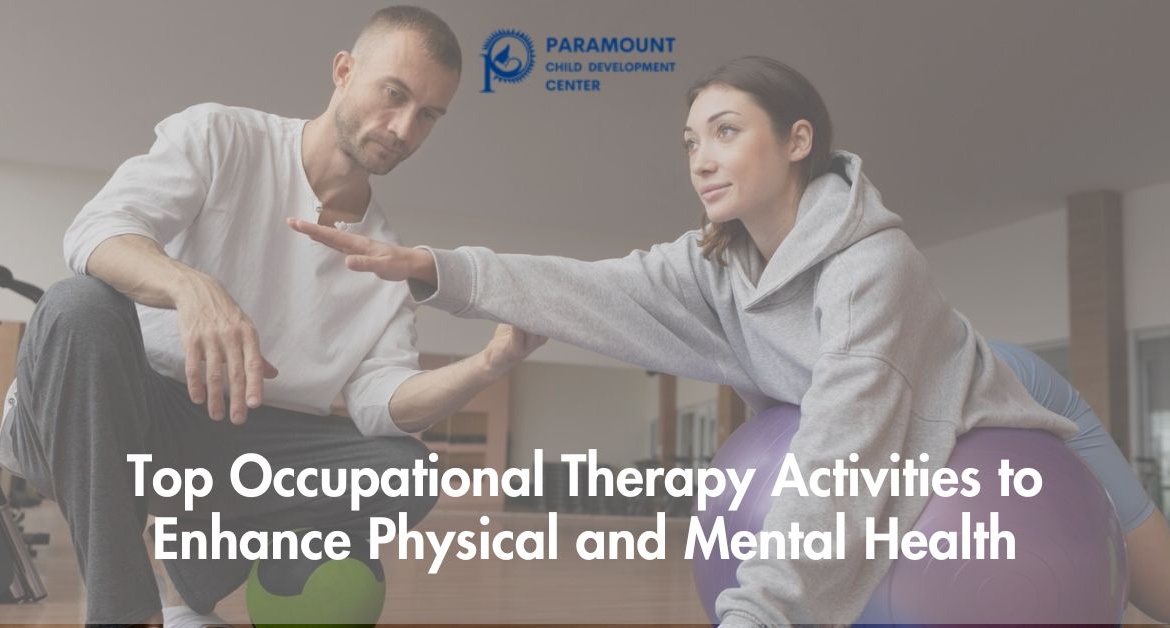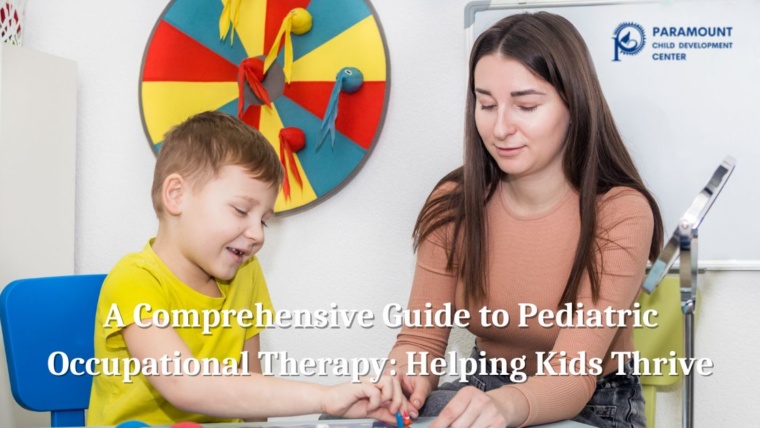Occupational therapy or OT is used to enhance someone’s ability to meet regular activities. If this is the therapy after injury, dealing with disability, or simply staying healthy, business medical activities will help both in the context of the body and the brain. Activities help individuals to increase strength, mobility, cognitive abilities and emotional peace. This blog discusses some of the best business medical activities that help strengthen the body and mind.
1. Strengthen physiological exercise
The most common OT activity is strong and flexibility improvement. Vocational therapists usually determine some exercises to increase special muscles. They require patients who can maintain injury, stroke or surgery.
These simple practices such as stretching, dumbbells or light weight lifting, or resistance exercises have a heavy ability to increase muscle strength and flexibility. When the human body gains strength, individuals realize that they have more endurance and better body speed, which they need to carry out their everyday activities, buy grocery items or even sit.

2. Fine Motor Skill Development
Most people lack fine motor skills, abilities, used in executing activities like writing, buttoning, or eating. OT exercises play very essential roles to these people for hand-eye coordination, grip and mastery.
For instance, tasks like bead threading, clay modeling, or sketching are well-established to improve the motor capacity and hand-eye coordination of the patient very efficiently. These are not just beneficial for patients who have suffered hand injuries, but also correct the fine motor capacity in older adults which otherwise declines with age.
3. Training of cognitive skills
Mental health is equally crucial as physical health.Various OT practices are meant to improve cognitive skills such as memory, concentration and thinking ability. Cognitive training is beneficial for patients suffering from conditions such as dementia, disabling brain damage, or anxiety disorder.
It also serves to stimulate and renew the mind. Simple activities like puzzles, memory games and matching games can improve memory and mental sharpness. For instance, an individual can assist in sharpening short-term memory and concentration to recall word or number sequence after a period of a brief moment. Such exercise not only sharpens the mind, but also makes an individual feel useful and productive, an effect which can have positive impacts on mental well-being.
4. Balance and Coordination Activities
Independent life is ensured through proper balance and coordination. In increasing such skills, OT intervention prevents individuals from falling, maintains the right posture, and attaches to daily activities without any difficulty.
Stability practice such as walking with a straight line or standing on a leg is excellent for increasing stability. Vocational therapists also use exercises such as Tai Chi or Yoga, which increase mental as well as physical balance. Both these exercises are extremely useful in patients with slight medical or surgery as they are able to reduce the risk of injury and maximize movement.
5. Sensory integration technique
Sensory integration activities are planned to enable sensory information more efficiently. Sensory integration activities can be used for sensory processing disorders, autism, or other developmental disabled. During an OT activity with sensory inputs through touch, smell, vision and hearing, the person may be assisted to react more efficiently.
For example, touching materials such as playing with water or sand, or even listening to soothing music, can be helpful in bringing balance to a person’s sensory input. All these contribute to increasing sensory processing and at the same time, calm a person more, reduce his level of anxiety, and causes it to focus better. Sensory activities control stress and mental sharpness.
6. Self-Care Skills Training
Self-care is probably one of the biggest benefits of having a healthy and independent life. Most business medical activities include the process of achieving daily self-care skills such as dressing, bathing, grooming and feeding. These activities can prove to be difficult for a person who has physical disability, injury or mental disability.
OT interventions also include buttoning a shirt, brushing teeth or preparing a simple food. These may be some easy tasks, but they are a fundamental part of maintaining a sense of freedom and dignity. These interventions make the individual more confident and physically and mentally healthy.
7. Social interaction and communication practice
Psychological welfare is highly dependent on social interaction and affection. Socialization activities in vocational therapy, for example, can offer a person a sense of psychological welfare, and elimination of loneliness they are bound to experience.
Group activities such as going to a local class, going to the hobby club or interacting with others help to create a sense of social skills and belonging. Group activities help create social skills and emotional support, which are components of healthy mental health. In addition, interaction with other people reduces loneliness and it can complete more lives.
8. Relaxation and Stress Management
Vocational therapy is not only physical improvement, but also the exemption of the mind. Relaxation is necessary in encouraging mental welfare and mental health. Vocational therapists educate customers on the use of deep breathing, progressive muscles, and the use of directed imagination to reduce and reduce stress levels.
Participating in these OT activities can reduce regular anxiety, depression and other mental illnesses. These strategies enable individuals to become their own captains of emotional health and meet the challenges of life with more equality and perseverance.
9. Daily routine and time management
A good routine can have better physical and mental health. Vocational therapists will usually teach to achieve someone and there will be every day’s program including activities in personal care, work, exercise and holiday. Having a single routine enables one to stay organized and one feels less stress.
Time management practice may involve writing a two-do list every day, reminding yourself of doing so, and can break the work in steps. Establishing a routine not only promotes the productivity of someone, but also increases the lack of stress, better sleep as well as the feeling of achievement.
Conclusion
Occupational therapy activities are purely essential for physical as well as psychological well-being. Ranging from strength increases to cognitive functions sharpening, stress management, or enhancing self-care, OT activities aim for an overall approach towards well-being. Integrated with these activities, an individual can regain lost independence, enhance the quality of life, and gain the advantage of improved emotional balance. By integrating these OT activities into daily life, a person can achieve long-term benefits for their body and mind.



